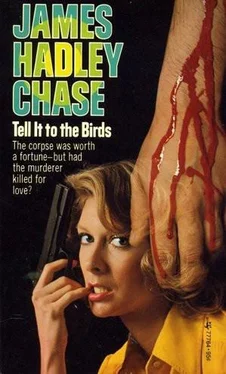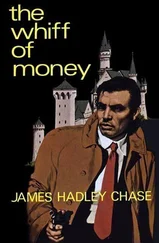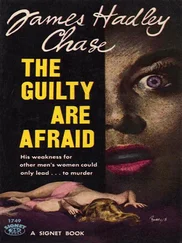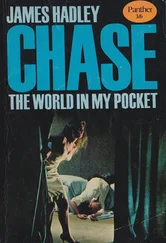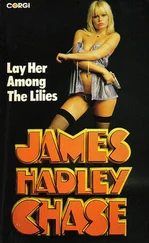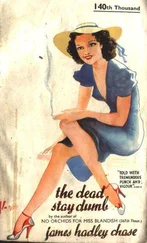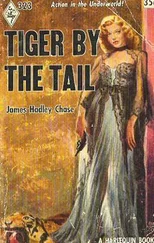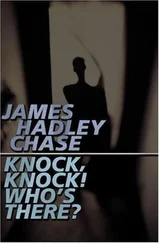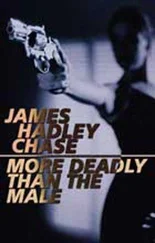James Chase - Tell It to the Birds
Здесь есть возможность читать онлайн «James Chase - Tell It to the Birds» весь текст электронной книги совершенно бесплатно (целиком полную версию без сокращений). В некоторых случаях можно слушать аудио, скачать через торрент в формате fb2 и присутствует краткое содержание. Год выпуска: 1963, Жанр: Детектив, на английском языке. Описание произведения, (предисловие) а так же отзывы посетителей доступны на портале библиотеки ЛибКат.
- Название:Tell It to the Birds
- Автор:
- Жанр:
- Год:1963
- ISBN:нет данных
- Рейтинг книги:3 / 5. Голосов: 3
-
Избранное:Добавить в избранное
- Отзывы:
-
Ваша оценка:
- 60
- 1
- 2
- 3
- 4
- 5
Tell It to the Birds: краткое содержание, описание и аннотация
Предлагаем к чтению аннотацию, описание, краткое содержание или предисловие (зависит от того, что написал сам автор книги «Tell It to the Birds»). Если вы не нашли необходимую информацию о книге — напишите в комментариях, мы постараемся отыскать её.
Tell It to the Birds — читать онлайн бесплатно полную книгу (весь текст) целиком
Ниже представлен текст книги, разбитый по страницам. Система сохранения места последней прочитанной страницы, позволяет с удобством читать онлайн бесплатно книгу «Tell It to the Birds», без необходимости каждый раз заново искать на чём Вы остановились. Поставьте закладку, и сможете в любой момент перейти на страницу, на которой закончили чтение.
Интервал:
Закладка:
As she moved to the door, the door opened. A woman and the hotel detective came in.
Hogan wasn’t at the trial. Meg went away for three months, and when she came out, Hogan had vanished. She had no money, no protection and the police pestered her.
Finally, in desperation, she left Los Angeles and headed for San Francisco. Her money ran out when she got as far as Pru Town on a Greyhound bus. She managed to rent a small room on the top floor of an office block. It was her bad luck to strike the worst winter for the past fifty years. The newspapers made headlines about the frost, snow and cold.
She had no pimp to protect her and she had no regular beat. It was when she was ill, frozen and defeated not caring what happened to her, using her last few dollars on cheap whisky, that she met Phil Barlowe.
She would always remember that moment when he came furtively out of the darkness. She was standing under a street lamp, wet snow falling on her, her feet frozen, aware that the cold had turned her face into a stiff white mask.
Barlowe, wearing a black, slouch hat and a dark topcoat, had paused and they looked at each other.
“Are you looking for a naughty girl?” Meg asked, her lips so stiff with the cold she had trouble in speaking.
“How naughty?”
The pale brown eyes scared her. The thin, ill-tempered face warned her this man could be a sadist, but she was beyond caring. She had to have money. If this mean looking creature had money, then she would take a chance with him.
They had gone together to her room. Barlowe had sat on one of the chairs making no attempt to take off his topcoat.
Meg had sat listlessly on the bed, shivering.
“Come on, honey,” she said impatiently, “don’t just sit there.”
“I only want to talk to you,” Barlowe said. “I’ve got no one I can talk to.”
She was so used to nuts, perverts and queers, that she wasn’t surprised.
“Look, honey,” she said. “It’ll cost you either way. Let’s have your present.”
He fumblingly produced his wallet and gave her three ten dollar bills. Meg, who had been working for practically nothing, couldn’t believe her eyes.
The room was heated by a small paraffin stove. It was enough only to keep out the frost. Cold, shivering, and feeling she was now running a temperature, Meg pulled the blankets over her and settled down in the bed, fully dressed.
She half listened to Barlowe talking. She vaguely gathered his mother had just died and he was lonely. He talked on and on and on. She had an idea he told her he had money, a cottage and a lovely garden. She gathered sleepily that he had a good job in some store. Warmth at last began to steal over her and she fell asleep.
She woke the next morning to find the stove out, the window covered with white frost and her head aching wildly.
Barlowe had gone. She sat up in panic and opened her handbag, but the thirty dollars was still there. She remained in bed, too ill to move, and at one time she thought she might be dying.
Sometime during the evening, as the shadows lengthened and the cold sordid little room began to dissolve into darkness, she heard a tapping on the door.
By then she was too ill to bother. She became aware vaguely that Barlowe was standing over her, his bitter distressed face close to hers. She tried to say something… to tell him to go away, but the effort was too much for her. She grimaced and closed her eyes, sinking into a feverish, frightening oblivion.
Later, she was vaguely aware of being carried down the narrow stairs in a kind of hammock… the stairs being so narrow and difficult a stretcher was impossible. She found herself in a hospital bed and she was in the quiet ward for ten days. Each day Barlowe came and sat by her side. He just stared at her and said nothing. She was so ill and weak she accepted him… a nut… but she was grateful for what he had done for her. During these ten days she constantly thought of Jerry Hogan, wondering where he was, who he was sleeping with, how he was making money enough to live.
Then suddenly, one morning, she woke up and she knew she was well again. Her one thought was to get out of the hospital, but she shrank from returning to that sordid room with its inadequate stove and the bitter wind that whistled under the door and through the cracks of the ill-fitting windows.
Barlowe came in the evening. They talked. “I’ve been pretty ill,” she said. “I don’t know anything about you… why have you been so kind?”
“It’s not kindness,” he said quietly, his pale brown eyes moving over her in a way that made her uneasy. “You and I are lonely people. I have a cottage: a garden: a good job. I’ve lost my mother. I’d like to marry you. Will you marry me?”
Right at that moment, thinking of the life that lay before her if she continued to try to battle along on her own, Meg didn’t hesitate. She regarded marriage as a convenience. If it didn’t work out, you could always get a divorce, so she accepted his offer.
They were married by a special licence a week after Meg had left hospital. She had been at first intrigued and pleased with the isolated house and the garden. She believed that she would be able to find some kind of happiness here, but she was quickly disillusioned.
She now never wanted to remember their first and only night together. It ended by Meg locking herself in the spare room while Barlowe scratched on the door as he knelt outside in the passage. She realized bitterly that she had married one of those sick minded men whom she had had to cope with so often during the time she had walked her beat in Hollywood.
But she knew herself to be hard and ruthless enough to control this poor, sick little man. They lived their individual lives. Then, some months later, as she was shopping in Brent, she came face to face with Sailor Hogan.
The sight of his reckless, handsome face sent a knife stab into her heart. Less than an hour later, they were lying on his bed in his small two-room apartment and she was telling him about Barlowe.
They met frequently, and during the weeks, while they talked, after Hogan had made brutal love with her, the idea that Barlowe could bring them the money they craved for began to evolve.
Hogan knew an insurance agent. Meg thought of the idea of insuring Barlowe’s life. Between the two of them they concocted the murder plan.
But now, as Meg, slightly drunk, sat on the settee staring into the fire, she realized that unless she came up with some bright idea, she would again lose Hogan. She sat there, her fists clenched between her knees, her mind active, her heart pounding with the sick thought of once again facing life without her brutal, vicious pimp.
CHAPTER 6
Barlowe stood by his bedroom door, listening. The time was just after nine thirty. It was Sunday night. Downstairs, Meg was watching a television programme. He had told her he was tired and was going to bed early. She had shrugged indifferently.
Satisfied she was occupied with some pop-singer who sounded to Barlowe like a banshee, he unlocked the cupboard on the wall, took from it the white bathing cap and the cheek pads, and with a fixed grin on his face, he picked up the .38 automatic, checked to see it was loaded, then dropped it into his overcoat pocket.
Moving stealthily, he left his bedroom, locking the door. He crept down the stairs, paused outside the sitting-room door to listen to the strident singing of the pop singer, then let himself out into the hot, still night.
He was afraid to use his car for he knew Meg would, hear him drive away, so he set out for the long walk across country to Glyn Hill, yet another quiet, favourite place where the young made love in their cars.
He arrived at the open space that overlooked Pru Town a little after ten-fifteen. Moving like a black, sinister crab, he edged his way through the shrubs.
Читать дальшеИнтервал:
Закладка:
Похожие книги на «Tell It to the Birds»
Представляем Вашему вниманию похожие книги на «Tell It to the Birds» списком для выбора. Мы отобрали схожую по названию и смыслу литературу в надежде предоставить читателям больше вариантов отыскать новые, интересные, ещё непрочитанные произведения.
Обсуждение, отзывы о книге «Tell It to the Birds» и просто собственные мнения читателей. Оставьте ваши комментарии, напишите, что Вы думаете о произведении, его смысле или главных героях. Укажите что конкретно понравилось, а что нет, и почему Вы так считаете.
